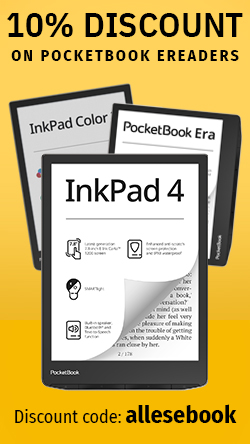Is Kindle Losing Popularity? Amazon’s Paperwhite Success Tells a Different Story

A few days ago there was an article here that briefly highlighted Amazon’s past Christmas sales. The Kindle Paperwhite – currently the company’s most important reading device – came out particularly well. It was the best-selling electronic product on Amazon.de, allowing the German branch of the shipping giant to once again celebrate a successful eReading Christmas season.
A very different headline appeared on Chip Online, picked up by our forum. The tech portal reported on the plummeting sales figures of the Kindle. The title even suggests the complete demise of Amazon’s eBook Reader offerings. Where does this stark contrast come from compared to the aforementioned success story?
Kindle Sales Plummet?!
The Chip article doesn’t refer to Amazon’s information, but to statements made by the CEO of the largest British retail bookseller, Waterstones, to the Financial Times. It essentially claims that Kindle eReader sales have “virtually disappeared.” In December, however, printed book sales increased by five percent.
Foyles bookshop echoes a similar sentiment. However, unlike Waterstones, the company doesn’t sell Kindle eReaders but Barnes & Noble Nooks. Their sales numbers were “not as impressive as expected,” according to Foyles.
It seems, then, that it’s not just the Kindle division that’s affected; the Financial Times also mentions the Nook offering in the same breath, painting a picture of a faltering eBook market. Let’s take a closer look at this.
Paperwhite Still the Most Successful eReader
It’s worth noting first that Waterstones has been through radical restructuring since 2011. After the company’s acquisition, the CEO was brought on to lead the bookshop chain back to profitability. It’s supposed to happen this year. Against this backdrop, it’s not so surprising that someone who’s invested millions in restructuring the company (and the stores) would emphasize the success of these measures – that’s only natural. There could be many reasons why Kindle sales at Waterstones have plummeted – but no exact sales figures were mentioned anyway, so it’s only speculative.
One thing should not be left unmentioned: According to Waterstones, growth in the print sector is five percent … in December. This is pleasing for individual bookstores, but ultimately this marginal growth can’t be blamed for the (alleged) collapse of Kindle sales.
So let’s take a look at the sales from Amazon UK. The British branch of the shipping giant also sells the eReader models on its own website. Here the situation is quite different: In the UK too, the Kindle Paperwhite was the most popular electronic product. So talk of the end of Kindle reading devices is unfounded – on the contrary: While the Paperwhite usually ranked second (or even third) behind the Kindle Fire HD in 2013, the eBook reader held the top spot in the electronics charts for several weeks in 2014.
Tough Times for Barnes & Noble
The headline that Kindle sales have plummeted (whether based on German or British numbers) is hard to sustain. An end to dedicated reading devices is more than unlikely.
Oh, and a word about Foyles or Nook: Barnes & Noble had a not-so-easy start in the UK. In 2013, eBook readers were sold off at bargain prices. You could get a Nook Touch for a mere 35 euros. It was foreseeable that the much more expensive Nook Glowlight, costing around 115 euros and not technically up to the main Amazon competitor, would sell poorly. You might call that “not impressive” (see above).
Nevertheless, it must be considered that the eBook market certainly doesn’t grow without limits. At some point, a plateau is reached, which is likely to affect sales of dedicated reading devices (thanks to their long durability and slow technology cycles). In the US, the eBook pioneer, digital books make up about 30 percent of all books sold (by number, not revenue). This threshold is now also considered a benchmark for other markets, with the British book market being much closer than the German one.
Waterstones on the Verge of a Digital Realignment?
Ultimately, the statement from the Waterstones CEO should not be given too much weight – at least not for the overall market. It’s more likely that the company is looking to part ways with Amazon and is already setting the stage before the official announcement.
The Digital Reader even speculates that Waterstones might next join forces with the Tolino Alliance. It’s unlikely that the British chain would continue without a digital business if its collaboration with Amazon ends, and the Tolino Alliance is currently on an expansion course anyway. There aren’t many alternatives either: Barnes & Noble is already working with several other British bookstores (apparently with mixed success, as mentioned above), Kobo with WHSmith, and there are hardly any other providers or device manufacturers. However, it should be noted that the Tolino brand has so far only launched in countries whose eBook markets were not as advanced as those in Britain.
In any case, it will be interesting to see. That the Tolino Alliance continues to expand in 2015 is not unlikely – so why not in the UK too? We’ll keep you updated.
